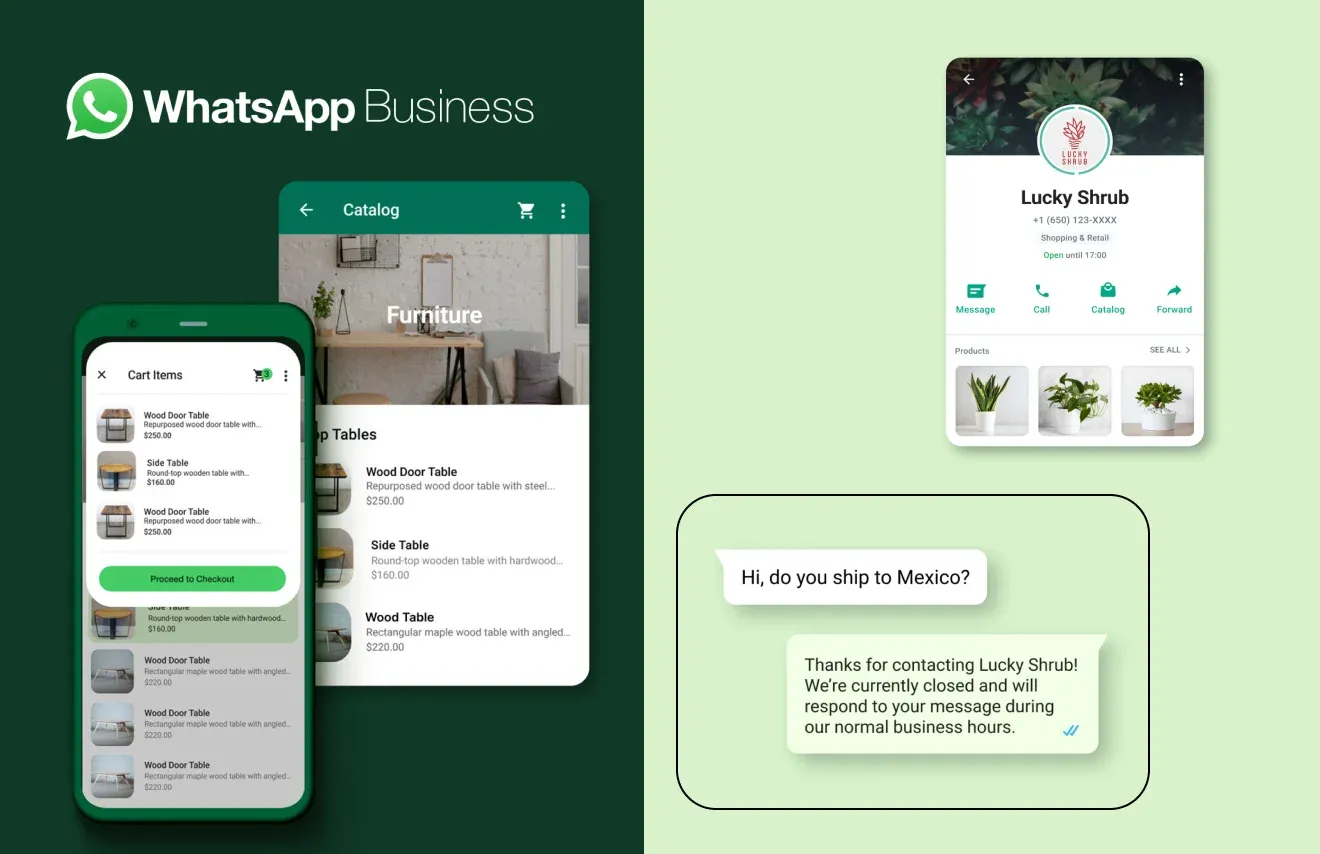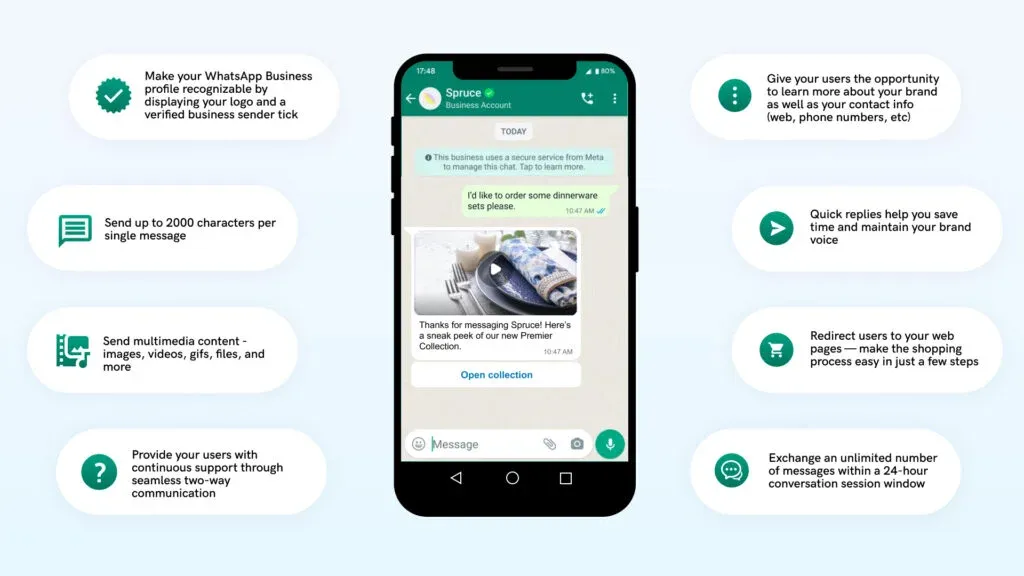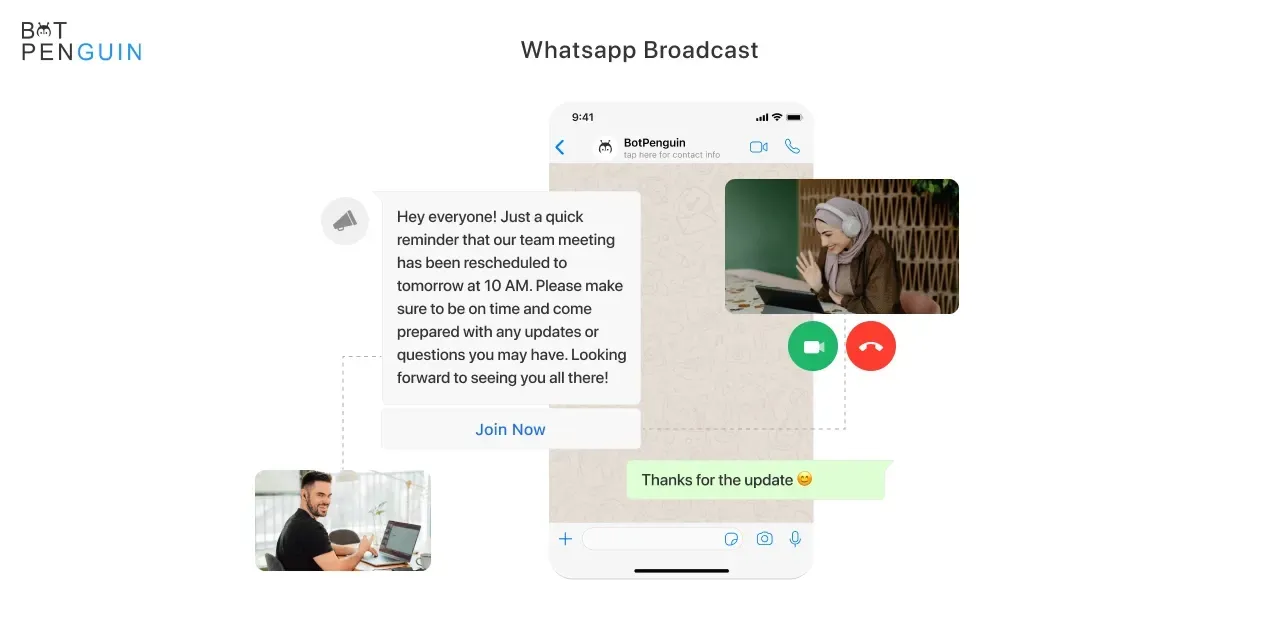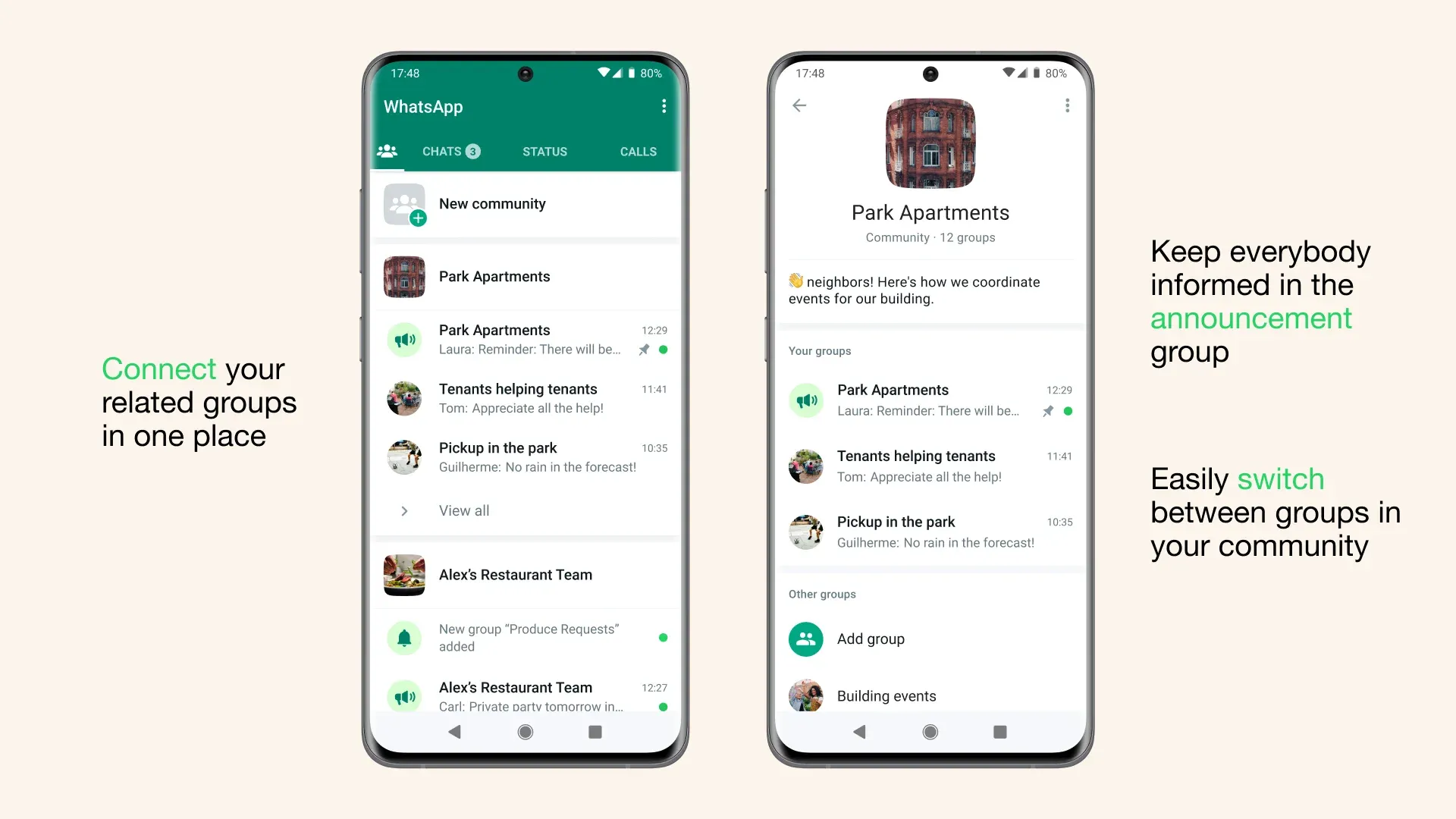Engagement is alive and well. Even in an age of short attention spans, there are countless opportunities to form meaningful connections. WhatsApp provides a powerful way to cut through the noise and have genuine conversations that build loyalty.
This guide will explore innovative whatsapp marketing strategies to boost engagement. Rather than a sales-driven approach, it focuses on nurturing communities and delivering value. The mindset is centered on giving, not taking.
Simple personal touches like personalized messaging and broadcast lists can work wonders. Small details make customers feel special and strengthen bonds over time. Exclusive status updates and private groups also cultivate a VIP experience that engages people.
The tactics here tap into the human need for connection. Success stems not from selling, but from listening and understanding customer needs on a deeper level.
Authenticity is key. In a busy world of constant noise, we all crave real human connection. By embracing this mindset, WhatsApp becomes a tool to build lasting relationships based on trust. The rest will follow.
There are endless opportunities to engage and connect meaningfully. With smart yet personal strategies, the WhatsApp marketing tool provides a powerful way to cut through the noise and foster genuine relationships.
Hack #1: Use WhatsApp Business

WhatsApp Business is a mobile app created specifically for businesses to communicate with their customers.
It’s a powerful WhatsApp marketing tool that can help businesses better manage customer interactions and provide a more personalized experience.
Here are some ways in which businesses can use WhatsApp Business as a WhatsApp marketing tool to boost engagement:
Features of WhatsApp Business

Profile Verification: WhatsApp Business allows businesses to verify their profiles to ensure customers know they're communicating with an authorized account.
Automated Messages: The app allows businesses to easily set up automated messages for FAQs and greetings, which can help them save time and provide quick responses to customers.
Labels and Filters: WhatsApp Business allows businesses to label chats and filter them according to categories, such as new customers or inquiries. This can help businesses prioritize their responses and provide more efficient customer support.
Examples of successful WhatsApp Business usage
AB InBev: The beer company used WhatsApp Business to create a virtual bar where customers could interact with each other, participate in trivia games, and order beer. This campaign led to a 3x increase in engagement compared to their other social media channels.
Pizza Hut: The fast-food chain used WhatsApp Business to allow customers in Venezuela to order pizza directly through the app. Customers received confirmation messages, and the orders went directly to the nearest Pizza Hut branch. This led to a significant increase in sales and customer satisfaction.
Hellmann’s: The mayonnaise brand in Brazil used WhatsApp Business to provide customers with recipe ideas. Customers sent a picture of the ingredients they had on hand, and Hellmann provided recipe suggestions that used their ingredients. This campaign resulted in a 60% increase in mayonnaise sales.
Hack #2: Use Broadcast Lists

WhatsApp Broadcast Lists are a great WhatsApp marketing tool for businesses to reach a large audience with personalized messages.
Here's how they work and how they can help boost engagement:
What are Broadcast Lists?
WhatsApp Broadcast Lists allow businesses to send messages to multiple contacts without the recipients seeing each other's contact information.
It's like a personalized mass messaging feature that ensures privacy for the recipients through WhatsApp marketing.
Benefits of using Broadcast Lists
Personalization: Companies may use broadcast lists to deliver tailored messages to their clients, strengthening the bond between them and making them feel important.
Time-saving: Businesses may save time and effort by creating a broadcast list and delivering messages to several contacts at once, rather of sending separate messages to each consumer.
Enhanced involvement: Companies may boost consumer engagement and cultivate a feeling of exclusivity and significance by delivering individualized communications to a wider audience.
Examples of successful usage
ASOS: The online fashion retailer used WhatsApp Broadcast Lists to send personalized product recommendations based on customers' browsing and purchasing histories. This resulted in a 25% click-through rate and a 15% increase in sales.
Airbnb: The popular accommodation marketplace used broadcast lists to send personalized travel recommendations to their customers. By tailoring the recommendations to each customer's preferences and past bookings, Airbnb saw a 30% increase in engagement and bookings.
And, to implement effective bulk messaging automation, you need two things at one place: A well-integrated CRM and an effective bulk message sender.
And, BotPenguin can do both of these things!
By integrating a CRM with your chatbot you can set up drip campaigns and send bulk messages on platforms that are convenient for your customers. Because BotPenguin provides no code AI chatbots for multiple platforms like:
- WhatsApp Chatbot
- Facebook Chatbot
- Wordpress Chatbot
- Telegram Chatbot
- Website Chatbot
- Squarespace Chatbot
- Woocommerce Chatbot
- Instagram Chatbot
Hack #3: Use Personalized Messages
Personalized messages are a key ingredient in successful WhatsApp marketing. Here's why they're so important and how businesses can use WhatsApp marketing tool to boost engagement:
The Importance of Personalized Messages
Improved customer experience: Personalized messages make customers feel unique and valued, improving their overall experience with the business.
Increased relevance: By tailoring messages to customers' preferences, businesses can send content that is more relevant and likely to capture their attention.
Higher conversion rates: Personalized messages have been shown to increase conversion rates, as they resonate better with customers and make them more likely to take action.
Suggested Reading:
How to use Personalized Messages?
Segmentation: Businesses can segment their customer base based on demographics, preferences, or purchase history. This allows them to send more targeted and personalized messages to different customer groups.
Use customer data: Businesses can leverage customer data to personalize messages, such as by addressing customers by name or referencing previous interactions or purchases.
Examples of successful usage
Netflix: The popular streaming platform sends personalized recommendations to their users based on their viewing history and preferences. This helps customers discover new content and keeps them engaged with the platform.
Starbucks: The coffee chain sends special offers and rewards to its customers through personalized messages tailored to their preferences and purchase history, which makes customers more likely to visit their local Starbucks.
Hack #4: Use WhatsApp Status
WhatsApp Status is a feature that allows users to share photos, videos, and text updates that disappear after 24 hours.
Businesses can use this feature in their WhatsApp marketing strategy to boost engagement. Here's how:
What is WhatsApp status?
WhatsApp Status is similar to the stories featured on other social media platforms. It allows users to share updates, photos, videos, or text that their contacts can view for 24 hours before disappearing.
Benefits of using WhatsApp Status
Visually engaging: WhatsApp Status allows businesses to share visually appealing content like photos and videos, making it easier for them to catch the attention of their audience.
Foster exclusivity: By sharing exclusive content on WhatsApp Status, businesses can make their customers feel a sense of exclusivity, encouraging them to engage and interact.
Real-time updates: WhatsApp Status is a great tool for sharing real-time updates, such as flash sales, limited-time promotions, or new product launches, allowing businesses to create a sense of urgency.
Examples of successful usage
Nike: The athletic brand used WhatsApp Status to share behind-the-scenes videos of their photoshoots, interviews with athletes, and exclusive sneak peeks of new products. This strategy generated excitement, engagement, and increased followership.
Dunkin' Donuts: The popular coffee and donut chain used WhatsApp Status to share limited-time offers, freebies, and downloadable coupons. This created a sense of urgency and encouraged customers to visit their nearest outlet.
Suggested Reading:
Hack #5: Use WhatsApp Groups

WhatsApp Groups are a powerful business tool to create communities and engage with customers.
Here's how WhatsApp marketing tool can help boost engagement:
What are WhatsApp Groups?
WhatsApp Groups allow businesses to create communities where customers with shared interests can interact, share ideas, and engage with the business in a more intimate and direct manner.
Benefits of using WhatsApp Groups
Direct communication: WhatsApp Groups provide a direct line of communication between businesses and their customers, fostering a sense of belonging and community.
Customer feedback and insights: By creating WhatsApp Groups, businesses can gather valuable feedback, insights, and suggestions directly from their customers. This allows businesses to understand their audience better and improve their products or services.
Exclusive content and offers: Businesses can use WhatsApp Groups to share exclusive content, offers, and promotions with a select group of customers. This creates a sense of exclusivity and enhances customer loyalty.
Examples of successful usage
Sotheby's International Realty: The real estate company created a WhatsApp Group for potential buyers looking for luxury properties. The group shared exclusive listings, virtual tours, and personalized market insights, increasing engagement and conversions.
Fitness Studio: A fitness studio created a WhatsApp Group for its members to share fitness tips, healthy recipes, and workout challenges. The group's sense of community increased customer engagement and brand loyalty.
Conclusion
WhatsApp can transform customer engagement when used strategically. Small personal touches make a big difference in cutting through the noise to form genuine connections.
Tactics like personalized messaging and private groups cultivate an exclusive VIP experience. Most importantly, embrace an authentic mindset focused on listening to and understanding customers as people.
Strengthening bonds on WhatsApp takes time and effort. But chatbot-building platforms like BotPenguin automate relationship-building so you can focus on what matters.
Let BotPenguin handle the heavy lifting of winning hearts and minds on WhatsApp. Its AI-powered tools ease engagement, allowing you to build lasting customer loyalty.
Frequently Asked Questions (FAQs)
How to use quick replies to improve engagement in WhatsApp marketing?
Quick replies allow you to promptly respond to customer queries and provide personalized messaging, leading to better engagement and customer satisfaction.
What are the benefits of using WhatsApp broadcast lists for marketing?
WhatsApp broadcast lists as a WhatsApp marketing tool enable personalized mass messaging, ensuring that your audience receives tailored content, which enhances engagement and drives conversions.
How to send personalized messages in WhatsApp marketing?
Send personalized messages by using customer data and segmentation techniques to deliver targeted recommendations, offers, and rewards. This creates a more tailored experience and fosters engagement.
How to leverage WhatsApp Status to boost engagement?
Use WhatsApp Status to share visually appealing and exclusive content, such as behind-the-scenes videos or limited-time offers. This captures attention and encourages customer interaction.
How can creating WhatsApp Groups help in boosting engagement?
WhatsApp Groups create a sense of community and allow for direct interaction with customers. They foster engagement, provide valuable feedback, and allow for sharing exclusive content and offers.


